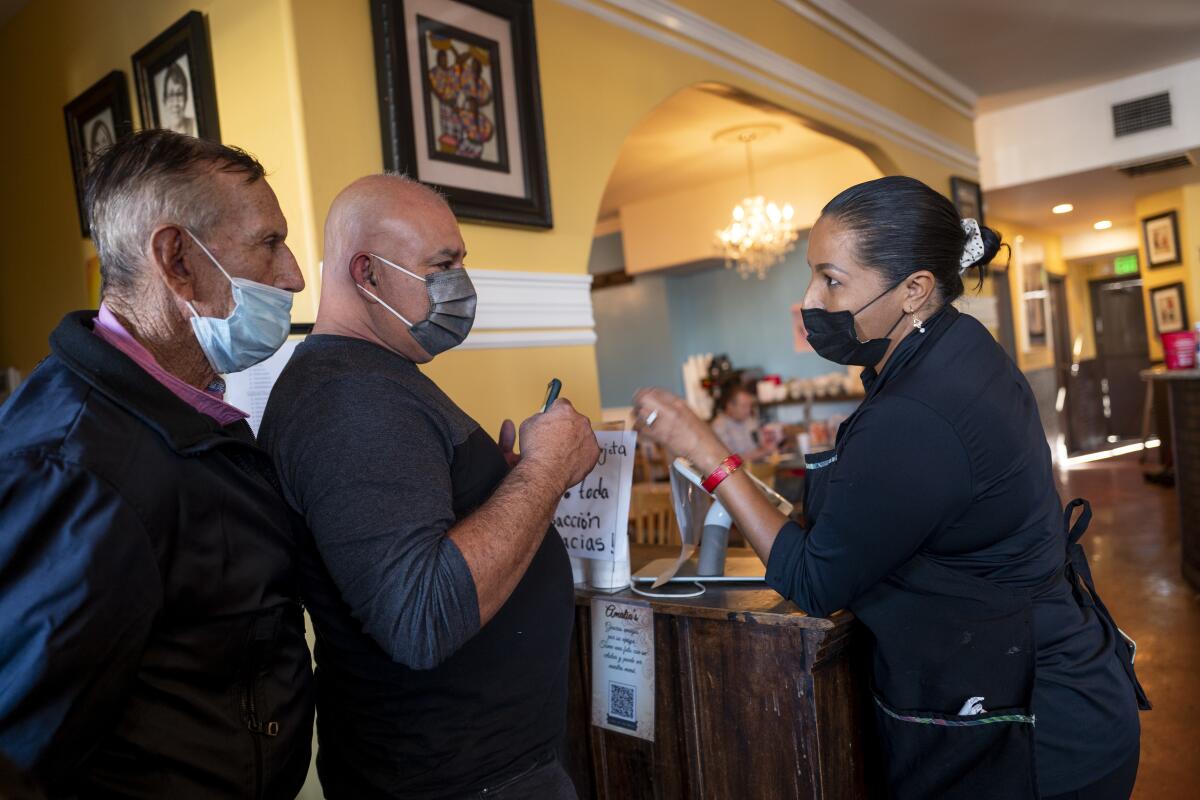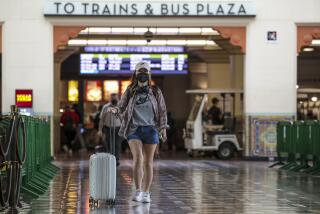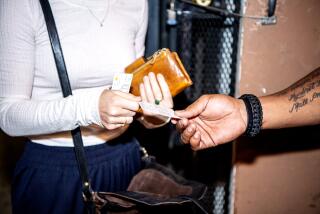Get those vaccine cards ready, Los Angeles

- Share via
No shots, no fun.
After three weeks of gentle outreach and education, Los Angeles restaurants, gyms, salons, retail shops, museums and other indoor establishments are required this week to start enforcing the city’s strict vaccine mandate for customers.
Patrons have to show proof they are fully vaccinated against COVID-19 to enter most indoor venues, with exceptions for brief visits for the restroom or to pick up orders. Businesses, and their employees, are responsible for checking customers’ vaccination status, and face escalating fines if they refuse to carry out the mandate.
Los Angeles’ vaccine mandate is one of the strictest in the country and it’s for good reason. Plenty of Angelenos are tired of pandemic protocols and rules, but the pandemic isn’t over, and a new and concerning strain, the Omicron variant, is driving a new round of cases. The best strategy to slow transmissions and to help protect the populations vulnerable to COVID-19 is to get most people vaccinated.
And that’s where mandates make the difference. Sure, many Angelenos voluntarily got their shots this spring and summer but there were also a significant number of holdouts. As Gov. Gavin Newsom and mayors in major cities, including Los Angeles, announced new vaccination requirements for government employees and workers in healthcare facilities, the pace of inoculations in California rose.
But workplace rules aren’t universal and it’s clear that some people need another nudge to get the shots. Vaccine mandates for businesses are the logical next step, particularly for indoor environments, like restaurants and bars, where masks come off and the virus spreads more easily. A patron can state a medical and religious exemption, but they have to stay in an outdoor area or provide a recent negative coronavirus test. The city’s rule doesn’t apply to certain essential activities, such as grocery shopping or visiting the pharmacy.
The purpose of the vaccine mandate is to help protect patrons and employees, and more broadly, help prevent another winter surge of infections, and the inevitable shutdowns that hurt businesses and customers alike.
Yes, the vaccine mandate is another minefield for businesses and their employees, who have already had to enforce mask mandates. Front-line employees will have to deal with ornery patrons and establishments will probably lose some customers by following the law. Businesses in communities with low vaccination rates will be hit hardest.
Mayor Eric Garcetti and the City Council were right to pass the mandate, but the city should be a partner in helping businesses comply. That includes redoubling efforts to encourage vaccinations in hesitant communities and providing technical and financial assistance to struggling businesses, particularly smaller establishments that already operate on thin margins.
The patchwork of vaccination policies is another challenge. Mandates work best when imposed countywide, like the county’s masking requirement, which has been largely successful. But the rules across the county are inconsistent. The Los Angeles County Department of Health requires proof of vaccination for patrons going into nightclubs, lounges, breweries, wineries and distillers, as does the city of Long Beach, which has its own public health department.
The Los Angeles City Council chose to be more expansive and protective by applying the city’s vaccine mandate to restaurants, coffee shops, stores, salons, theaters and other indoor venues. It’s a shame the county did not adopt the city’s model. It’s confusing to have different rules for different businesses and jurisdictional lines aren’t clear.
So keep your vaccination card handy, Los Angeles. It’s the law and, more importantly, it’s the ticket to getting us past the pandemic.
More to Read
A cure for the common opinion
Get thought-provoking perspectives with our weekly newsletter.
You may occasionally receive promotional content from the Los Angeles Times.









